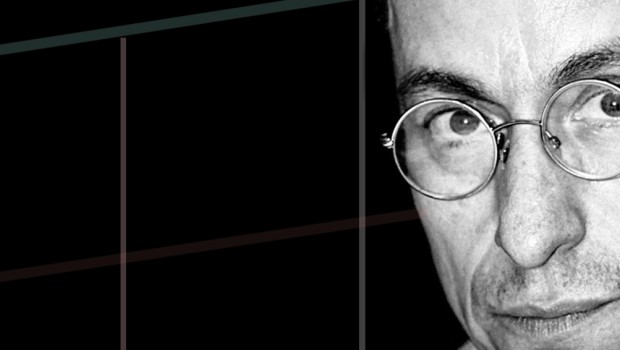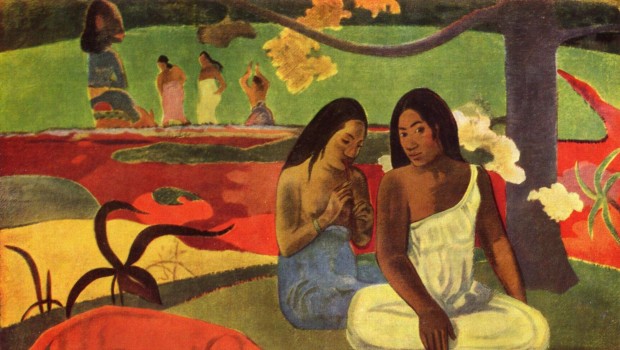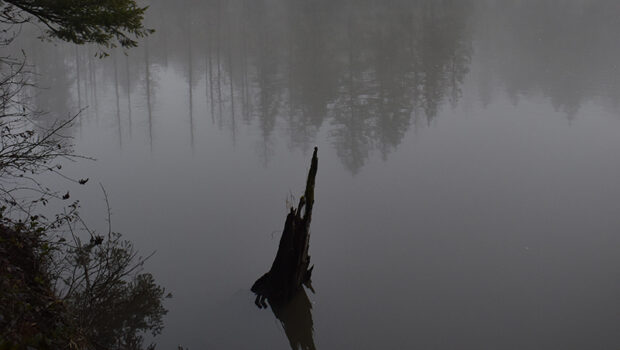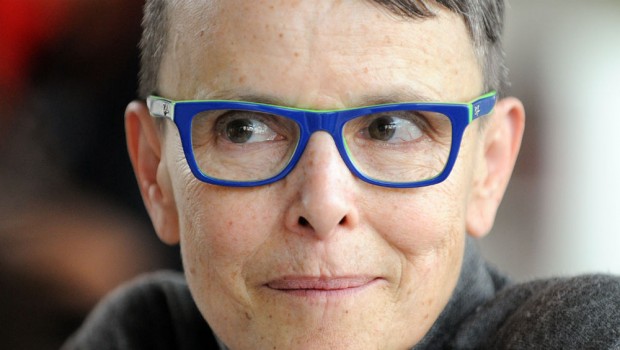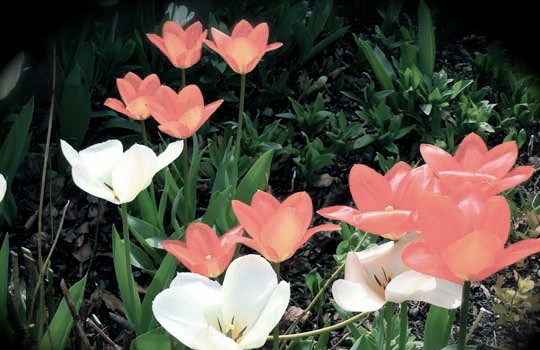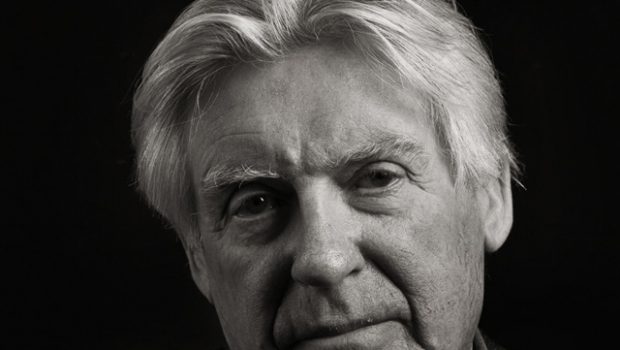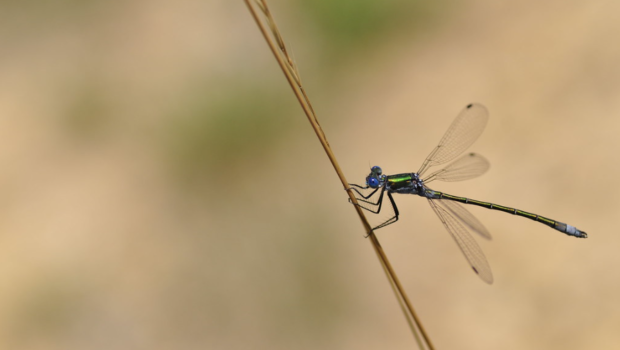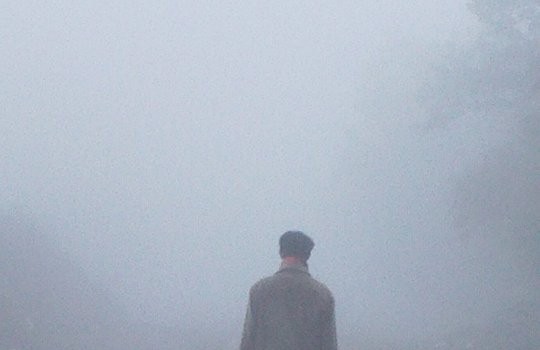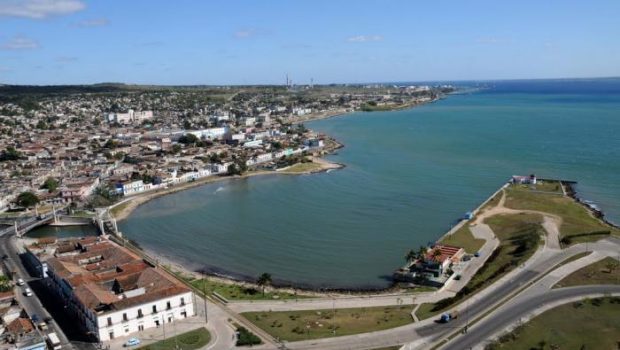Revolution Paper
Víctor Manuel Mendiola
For my son Víctor Manuel and his teacher
Nibble, nibble I hear a mouse
Who’s that eating at my house?
JACOB AND WILHELM GRIMM
Cuauhtémoc’s face
is a maroon circle
on cheap paper.
Almost always, his face rises
with the rhythm of a lance.
Also, his eyes lift
and clouds climb up against the sky
on the cardboard lined cover.
In the textbook
Cuauhtémoc is not a man;
he is a shadow on brown-skinned paper,
revolution paper
that weighs 11 pounds.
Behind his form
an eagle soars.
The bird follows the horizon,
air in the mountains.
The wings are suspended
in a position of flight;
a stone split into two boulders.
I turn the pages
of my textbook:
The Public Education Administration, 1964.
National Printing Shop.
Enormous presses
in cold chambers.
Printer’s proofs in piles
and the Aztec calendar.
The light in flint.
An outsider’s tongue.
Claws. Crushed hearts.
The glyph of a rabbit
or a tiger.
Prickly pears. Maize. Cacao.
A salamander. A dog.
Water everywhere.
The rain showers
in July.
Cortés gazes at us
from the fortress
of revolution paper.
Groups of soldiers
wear breastplates.
Nervous horses stand
in attack formation.
According to Fray Diego de Durán,
one captain
destroys the Cu temple idols,
and knives a thousand Indians.
A tumult of paper in the city of letters.
In the textbook.
the cartoonish figures don’t say a word,
and only move without moving.
Pages turn slowly,
horses neigh,
gallop at full stride,
and charge against the crowd.
A small float
of brigantines
cross the lake of Mexico.
Below a cloudy sky,
where rays of light shine
through the vegetable-green curtain
of a vibrant forest,
the boats’ sails unfurl.
“Moctezuma enjoyed
going on the swiftest brigantine.”
“They would move quickly over
the lake’s beauty.”
“Moctezuma was at leisure
during the quiet and speedy voyage.”
“He descended from the boat
when it arrived at a crag
and killed all the game he desired:
deer, hare, rabbit.
He returned to the city very content.”
“Cortés sent
Pedro de Alvarado
and Cristobal de Olí
to accompany Moctezuma.”
“They went with him.”
“Captains with blood in the eye.”
The forest shimmers
in the afternoon sun.
Birds fly.
Three hummingbirds
escape in opposite directions.
In the book’s pages
a sparrow hawk swoops down
over a grouse.
“Moctezuma orders them
to take that same sparrow hawk
as a gift
to the soldiers.”
Only a gift.
I read the pages,
and examine
thickset drawings,
the lines mix
yellows and blues,
reds, greens, and whites.
A land of three colors.
The other children
contemplate without examining their own
history.
They write names, surnames,
a place in who knows what memory,
numbers are spoken aloud in the teacher’s
voice.
She is a mere twenty-year-old woman
with large feet,
long legs,
tiny breasts,
hips like an amphora
and drooping, weepy eyes
that are so Egyptian.
Her amber eyes are enormous.
Pages turn
—a smell of paper—
and the soldiers,
riflemen, crossbowmen
in their saddles,
some with pikes,
others with rapiers,
move past loaded with gold;
they try to abandon
Mexico-Tenochtitlan.
There is a sound of paper in their eyes.
“There was with us a soldier
who called himself Botello.”
“Many said he was a necromancer.”
“Some called him an astrologer.”
“Botello had said:
that night
we should have left Mexico.”
Four figures
form an angle.
A card with circles and triangles.
Scorpion in the house of the moon.
A tail that twists the air.
“He gave the order to make a bridge
that would serve as a path
for the horsemen and the bundles
and, for protection
against the attacks,
they chose two-hundred and
fifty Tlaxcaltecas
and around one-hundred
and fifty castillians.”
History does not move
in the ink
on the book’s revolution paper.
The caricatures rigidly advance.
An immobile river flows,
a river of air that nobody sees.
Cortés distributes the gold.
“Ask the scribes
to give testimony.
He can’t have any more.”
Bernal writes,
“I never had greed for gold.”
And as misfortune
reaches almost
all things,
a downpour falls over the city,
the steeds lose their balance,
“I don’t know how many die from stoning.”
“Oh, oh, cowards!”
“We responded with
hacks and thrusts.”
Cortés manages to reach
Tacuba where a few more
captains catch up with him.
The rain hides their faces.
A white curtain of dark water.
Horses fall in the mud,
roll over on the hard slabs.
“The Mexicans
shot arrows at us.”
“Many more soldiers
under Pánfilo de Narváez die
than those under Cortés
because the latter fled with the gold.”
Outside the classroom it also rains.
A persistent drizzle
wets the wide patio
of our coarse government school.
The seated teacher
crosses her legs.
We tremble.
We can’t keep from seeing
shadowy colors
between her thighs.
She asks us to turn to another page.
Her voice carries us away.
Her eyes like drops of water uphold us.
Drooping, amber eyes.
We go out to the garden.
Puddles, trickles,
tremulous pearl-drops.
The lofty ash trees vibrate,
Their treetops bow.
The cypress’
tent of vapor.
Avenues of air
over the liturgy of water.
Footsteps on the stones.
Shoving. Jumps.
Elbowing. The look
of blood in the eye.
During recess, the girls play
on the other side
of the patio.
Blue skirts.
White shirts.
Dark red sweaters.
From a distance
they are splotches of color.
Drawings on the day’s page.
The trees are so black
in their greenness.
We take in air like fish
in humidity.
The black letters say,
“The wounds did not hurt us
neither were we
hungry, nor thirsty”
We hear the sea’s murmur
in the waves of the forest.
It smells of moldy hay.
We stare from the deep wells of our eyes.
We gather close together
For heat.
A gray flame leaps
from our mouths.
A small spiral, a comma,
another comma, a tongue.
The girls jump
at the other end of the patio.
The girls play,
and run with the rain.
We gaze across at them.
The distance makes them shrink
to the size of our hands.
I put my hand on one of them.
Drawings move in the water
at the speed of pages turning
in the textbook.
Our teacher
is one more drawing:
large feet,
long legs,
a line and a circle
that ends at the point
of her head.
Her voice rings out
with the clink of glass.
“How cloudy the day is.”
A white curtain of black water.
“The thought
that of us neither the bearded
nor the beardless will remain.”
The thought
of an instant expanding in the tumult.
The moisture and cold
swells our bladder.
“I want to go to the bathroom.”
The snowy urinals
with drab brown urine.
White dirtied by liquid gold.
Feces. Revolution paper in rolls.
The graffiti of penises
with fallen testicles.
“The one who comes here
to piss is a homo.”
Green obscenities and caricatures
scribbled in crayon or pencil.
Foul odor of digestion.
In a corner
of the bathroom
three large boys
bully a smaller one.
Scorpion in the house of the moon.
A tail that twists the air.
Hard, stern looks.
“You have to touch us.”
Hate in their eyes.
“You’re like the girls
because you play with them.”
“You look like Snow White.”
“Bend over, we know you like it.”
The large blue eyes of the small boy
grow larger.
The immensity of the bathroom
and the appetite
of being very close.
The anxiety of not knowing
whether to leave or stay.
“If it isn’t now,
who knows when?”
says a gray scribble on the wall.
“Here I go,”
screams a green scrawl.
Fear and love,
words and acts are confused
and make you feel up or down.
A dark curtain of silence.
“Bend over.” The drizzle grows stronger.
It strikes against the walls.
Poor pestered beautiful boy.
The clarity of fear
in the bathroom struggle.
Footsteps in air
over the liturgy of water.
The tumult of water grows immense.
Rabid rivers
run down to the valley.
The noise smells of dampness.
“How to escape from here.”
“How to make them listen to me.”
“How to understand yes
and, at the same time, no.”
“Some looks make one’s eyes recoil.”
“Two pincers and tail.”
“Leave him alone.”
“Don’t hurt him.”
“He’s much younger
than you three.”
In the windowpane a lizard
scurries nervously.
It draws the outline
of a vowel.
Snow White escapes
like a hare.
The rain sounds in a strange fairytale.
Furious waters fall from heavy clouds
that lazily drop and slowly rise.
I see the boy
with blue eyes move away,
he gets lost beneath the day’s rain.
In the bathroom’s impiety
the others keep quiet.
I walk wherever.
I walk in the puddles
toward myself.
A white curtain of liquid smoke.
Large drops run down my face.
Silent paper in the city of water.
There, at the lake,
the forest always more real.
In my textbook
a gust of wind blows.
The clouds open
between a ray of sunlight.
I walk inside
a rounded
silver urn.
“The point of a rapier
took out an eye
of the captain
who came from Cuba”
and I sit down
to contemplate
the stupor
in the ash trees.
Everything so white after the rain.
The bolt of lightning.
White are the stones
that do not move.
White are the walls
that peel with lime.
White are the trees
that sprout bridges.
Thought moves
in white zigzags
over the lucid leaves.
Everything so pale
that it provides silence.
White are the cars
across the street.
“In Botello’s bag
they discovered some cards.”
“Between signs and ciphers,
between notes and lines,
Botello asked himself
if he were to die here
and a marking said:
you will not die.”
“And another marking said:
you will die.”
“And another, whose
scrawl was not very clear,
also affirmed:
your horse will die.”
“Yes, no; yes, no; yes, no.”
“Leave and stay, and with staying depart.”
A line in a circle,
a square in a triangle.
The speed of air,
the slowness of water.
Cold that courses through a body
shaking in fear.
Scorpion in the house of the moon.
“Let me listen.
Don’t you understand
that they are going to get us?”
“They are almost stepping on us.”
Botello’s book
opens in my book
between the white points
of typeset Century 14.
With wet hair dripping
over the writing desk,
I listen to the teacher,
who tells us who knows
what things.
Where are
Cuauhtémoc’s bones?
As she uncrosses her legs
we tremble.
– Víctor Manuel Mendiola. Poeta. Tan oro y ogro (1987-2002), es la más reciente reunión de su poesía.
Posted: April 7, 2012 at 8:31 pm


